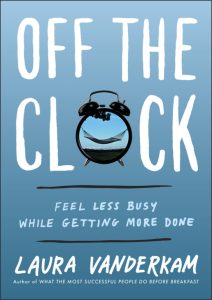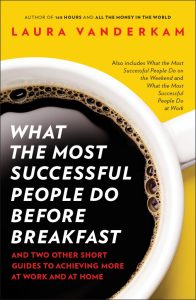What if you could get more time by spending a small amount of time reading? It seems counterintuitive but is actually possible. (Lack of) time seems to be one of the most (reported) limiting factors for any and all goals we have in life.
I recall the early days of my personal training career and the constant feeling of being “busy”. But I often wondered – what exactly did I accomplish today? Where is the time I need to devote to continuing education, self-care, and enjoyable excursions that do not involve work-related events? How can I do more of what I love on a personal level? The answers evaded me for years…and years.
Finding Time Freedom
The irony of time is that we always wish for more of it, but we also wish for the minutes to tick by as fast as possible during times of high stress or misery. Both are reasonable wishes to make.
We and I mean this as a society in general, seem to always be on a time budget. How frequently do your clients say…
· “I didn’t have time to exercise this week.”
· “I had a meeting popup and can’t make it to the gym.”
· “I’ve been so busy lately. It’s interfered with my goals.”
Now, consider how common it is for you to think similar thoughts…
· “I didn’t have time to meet a friend for coffee.”
· “I had a busy day of back to back clients with no time to do X.”
Time, if we allow it, has a way of mastering us. The truth is, we all have 168 hours in a week – it’s how we choose to spend those hours that can help us achieve more time freedom and, thus, savor time instead of spending it.
Learn to Master Your Time
I recently read two books that answered many of the questions I asked myself over the last 15 years of my professional career and personal life. One is Off the Clock and the second is What the Most Successful People Do Before Breakfast. They are both written by best-selling author and time discipline expert, Laura Vanderkam.
The premise of the first book, Off the Clock, is about studying how we spend our time and identifying ways to harness the power of time and feel less busy but achieve more. Vanderkam notes, “time freedom stems from time discipline” (2018). The author offers seven principles to achieve time freedom.

1. Tend your garden
2. Make life memorable
3. Don’t fill time
4. Linger
5. Invest in your happiness
6. Let it go
7. People are a good use of time
Supporting these tenets are examples from some of the busy, but relaxed professionals using the tools Vanderkam suggests. It’s not only an incredibly well-written work, it’s practical and allows the reader to take an in-depth exploration of his or her own perceptions of time.
The second book, What the Most Successful People Do Before Breakfast, includes two other mini-guides written by Vanderkam. This book is a collection of stories from Vanderkam’s personal life as well as other individuals she interviewed.
The three biggest points I learned from reading this work are how to:

1. Implement strategies to help me capitalize on the value and usefulness of morning hours
2. Develop practices to help you maximize the working hours of each day
3. Create anchor events for deeply satisfying weekends
One of the points that resonated with me the most as I thought about my own harried and a somewhat frenetic schedule is “the daily discipline of seeking joy makes astonishing productivity possible because then work no longer feels like work.”
The tools and strategies Vanderkam showcases are not only valuable to you, they could unlock the door to greater progress for your clients. Who doesn’t want more time and greater success?
[info type=”facebook”]Contribute to the conversation in the NFPT Facebook Community Group.[/info]
Dr. Erin Nitschke, NFPT-CPT, NSCA-CPT, ACE Health Coach, Fitness Nutrition Specialist, Therapeutic Exercise Specialist, and Pn1 is a health and human performance college professor, fitness blogger, mother, and passionate fitness professional. She has over 15 years of experience in the fitness industry and college instruction. Erin believes in the power of a holistic approach to healthy living. She loves encouraging her clients and students to develop body harmony by teaching focused skill development and lifestyle balance. Erin is also the Director of Educational Partnerships & Programs for the NFPT. Erin is an editorial author for ACE, IDEA, The Sheridan Press, and the Casper Star Tribune. Visit her personal blog at belivestaywell.com

